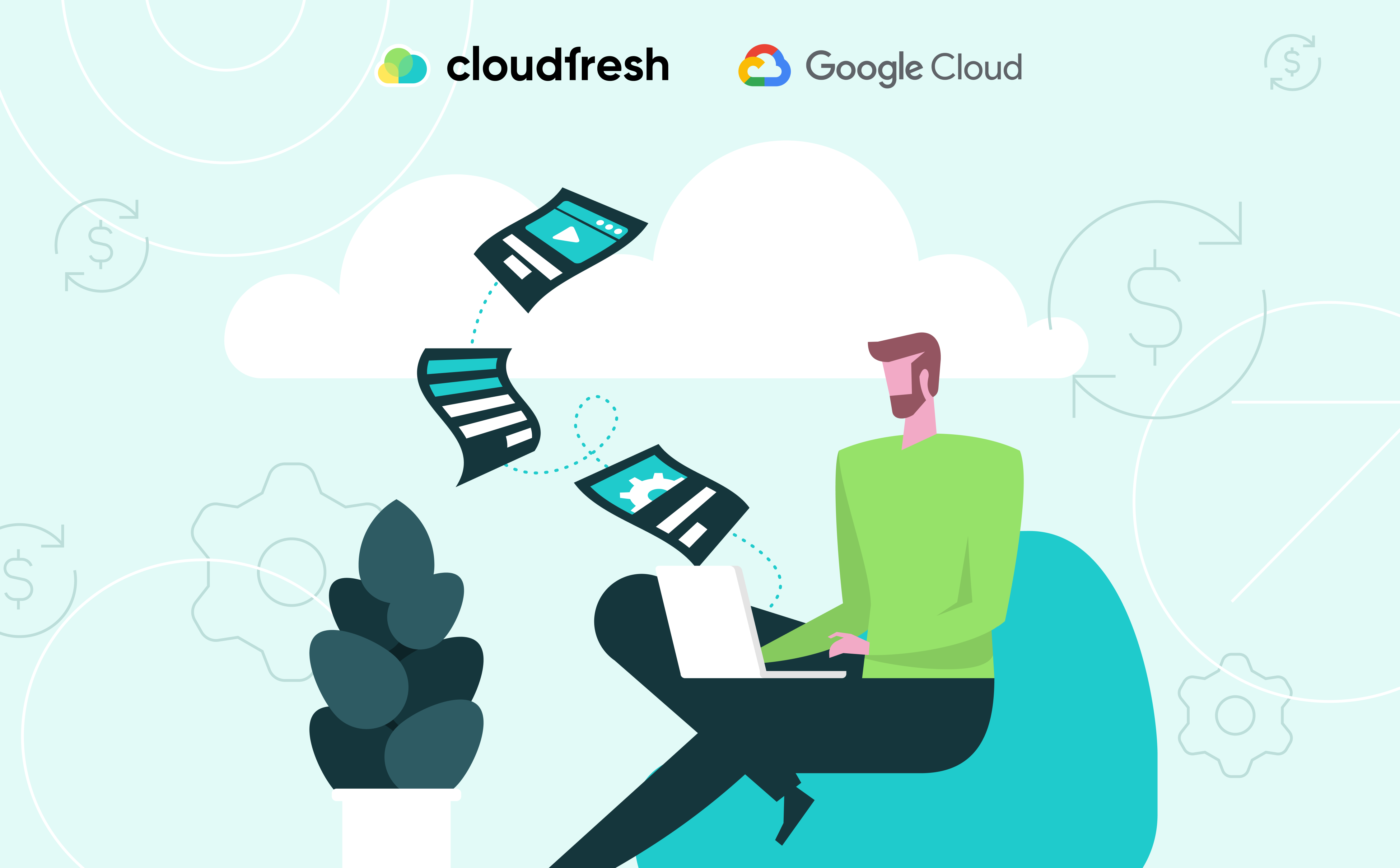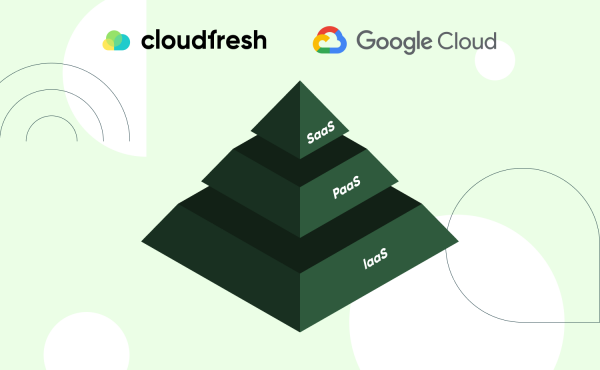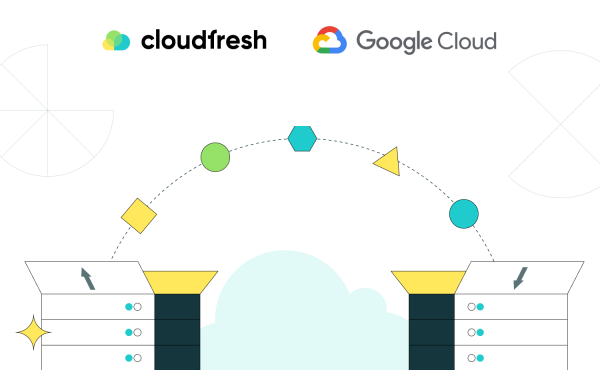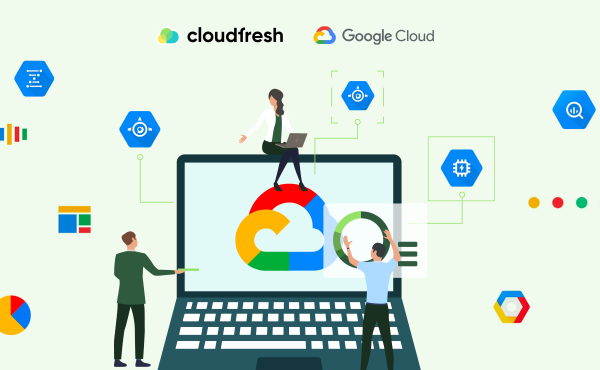IaaS, PaaS, SaaS: Choosing the most relevant solutions for your business
Is the Cloud Truly Cost-Effective, or Why Do Businesses Choose It

Nowadays, more and more businesses are migrating to the cloud, so for the last decades, it has grown in popularity. But does it mean that cloud computing is the new normal? And what are the real reasons behind this choice?
Indeed, the cloud attracts users because of its high convenience, flexibility, mobility, security, other great benefits, and rapidly growing prevalence. But what if we tell you that not only can the cloud provide you with all of the advantages you got from on-prem infrastructure, but it also enables your organization with one of the most cost-effective ways to run your business operations? Hard to believe, and yet it’s true.
Let’s plunge into the crucial aspects of getting cost benefits from cloud computing. There are several reasons to migrate to the cloud for faster revenue growth rather than keeping everything local.
1. Reduce Your Capital Expenditures
To continue the business viable, the companies have to pay some expenses. There is a distinction between Capital and Operational expenditures in this case. The first one, also known as CapEx, is the long-term, even lifetime, expenses organizations should provide and maintain, such as buildings, hardware, servers, software, etc. At the same time, the second category of expenses — OpEx are the one so cold immediate expenses that are usually short-term and need to be covered for the business to stay afloat, such as website hosting, domain registrations, subscriptions, employees’ salaries, etc.
And now, imagine that you do not have to pay for all of your physical data centers, servers, and other expensive equipment because everything is given and maintained by your cloud provider. It is a one-way ticket to cutting off most of your capital expenditures and concentrating your budget on other essential costs. Indeed, it could be challenging for some businesses to let the cloud provider take most of their infrastructure under its control, but after all, it saves lots of resources.
2. Keep the System Updated While Minimizing the Costs
As you see, the local data centers and hardware plays a crucial role in on-prem infrastructure. But not only them. Some regular activities by the IT team to keep your data storage and software up with the modern requirements that are rapidly changing also need to be provided regularly. It takes lots of resources from IT specialists to renew or replace some data servers or other essential components. Meanwhile, the cloud provider is responsible for doing it himself, so your system will seamlessly update without engaging additional resources from your side. Consequently, cloud computing can reduce your operational costs, maintenance, and upgrade efforts.
3. Save Your Money Without Overspending
In the core of most well-known cloud providers, such as, for example, Google Cloud and Microsoft Azure, lies a simple “pay-as-you-go” model, which means that you should pay only for what you use and when you use it. So with cloud computing, you do not have to predict your annual usage but concentrate on your actual one. It enables your organization with fewer risks for operational planning and realization of IT projects.
This model gives your business great financial flexibility and allows you to scale up and down when needed quickly. Most cloud providers offer flexible plans and multiple data storage, so you can adjust your spending by easily augmenting or cutting off your storage while these changes are necessary.
4. Optimize the Cost of Your IT teams
In case you need to manage your on-prem data centers, processors, servers, and hardware, you need a unique dedicated IT team to cover all these responsibilities. In a cloud computing environment, your cloud provider possesses and maintains the data storage, which actually needs less hardware than legacy systems. It means you do not need some in-house team committed to managing your local ecosystem, and your IT experts can focus more on valuable and strategic tasks.
It also dramatically helps you when your business is scaling with on-prem infrastructure — the more you have in your data storage, the more resources internally you need to manage it. With the cloud provider responsible for all the infrastructure, you do not need to engage more employees while increasing your data. You’re completely covered!
5. Backup and Recover Your Data Swiftly
Buying additional servers to back up your data that is stored physically is complex and expensive. And yet, while managing the local servers, you will need it after some time. Traditional systems often need data-redundancy services that will ensure the backup of your data when the one served with your company’s data fails. You need to pay fees or buy additional systems to back up your data. Such services are often included in the cost of cloud services provided by your host.
In response to that, cloud computing offers you multiple data centers to store your data in the cloud, which are managed by your cloud provider. In this case, you have your data duplicated within the cloud, strengthen the resilience, and minimize downtime while simultaneously benefiting from cloud computing cost savings. And, yes, your recovery can be as fast as lightning. For example, Google Cloud Backup and DR shorten your RPO (the maximum time your data can get lost) by up to 10 minutes, even without overloading your system.
Therefore, simplified backups, convenient data control, quick recovery, and minimum losses are indispensable aspects of the cloud and your cost economies within its ecosystem. So, whether you are wondering — is cloud computing cost-effective. Yes, definitely, but it also has even more advantages for your business. While that holds true for many sectors, if you’re in finance, check out our latest article on the benefits of cloud computing in financial services.
How to Start Your Journey with the Cloud?
If you wonder how to launch your cloud journey, choose the best provider, and the relevant solutions, there is a simple answer: find a partner who will gladly support you during all stages of your cloud migration.
Being Google Cloud Premier Partner, Cloudfresh is the essential link between your business and the cloud. We offer valuable support, consultation on the cloud computing cost of various services and expertise to get the most out of cloud computing.
Our Google Cloud consulting services include IT infrastructure assessment, migration to the cloud infrastructure with the help of CloudM or other solutions, application containerization, CI/CD and Backup and DR services, and many more. If you are ready to unleash the full potential of cloud computing while optimizing your cost-effectiveness, it’s definitely the right time to start.













